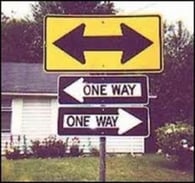Old Lean Dude
A Blog About Understanding The Toyota Production System and Gaining Its Full Benefits, brought to you by "The Toast Guy"
Leave a reply
This entry was posted in
old lean dude,
TPS,
lean manufacturing,
six sigma,
lean thinking,
GBMP,
Toast Kaizen,
muda,
process improvement,
kaizen,
lean government,
hoshin kanri,
TPM,
5S,
true north,
lean summit,
poka-yoke,
lean in healthcare,
optimization,
toyota production system,
visual control systems,
inventory,
Northeast Shingo Prize,
made in america,
Muri,
shigeo shingo,
standardized work,
Hajime Ohba,
set-up reduction,
value stream mapping,
mura
on
February 03 , 2012.

 Both office and factory were heavily invested in workplace organization, striving to create a workplace free of confusion. Employees told me, when asked, that they never had to search for anything – ever. The manager who walked with me proudly spoke of their team effort to create order from chaos by sorting out unneeded items – information, material and equipment. “The employees in each department were the change agents,” he said. “They decided first what should go and then where to place the things they need.”
Both office and factory were heavily invested in workplace organization, striving to create a workplace free of confusion. Employees told me, when asked, that they never had to search for anything – ever. The manager who walked with me proudly spoke of their team effort to create order from chaos by sorting out unneeded items – information, material and equipment. “The employees in each department were the change agents,” he said. “They decided first what should go and then where to place the things they need.”